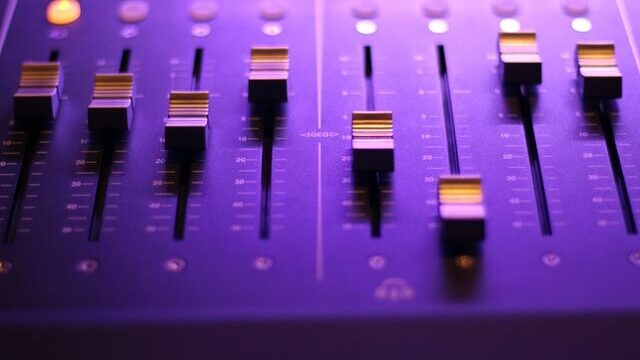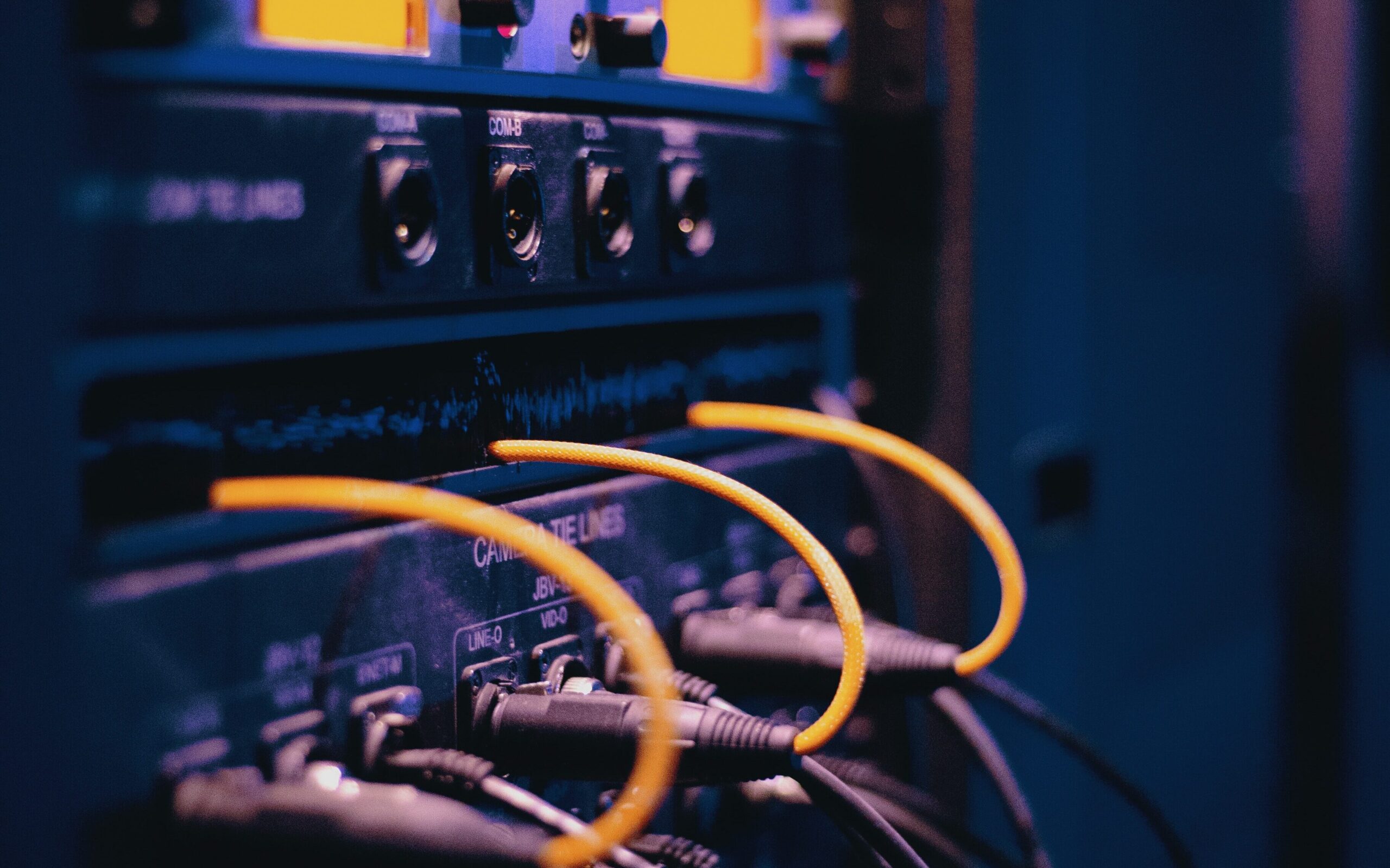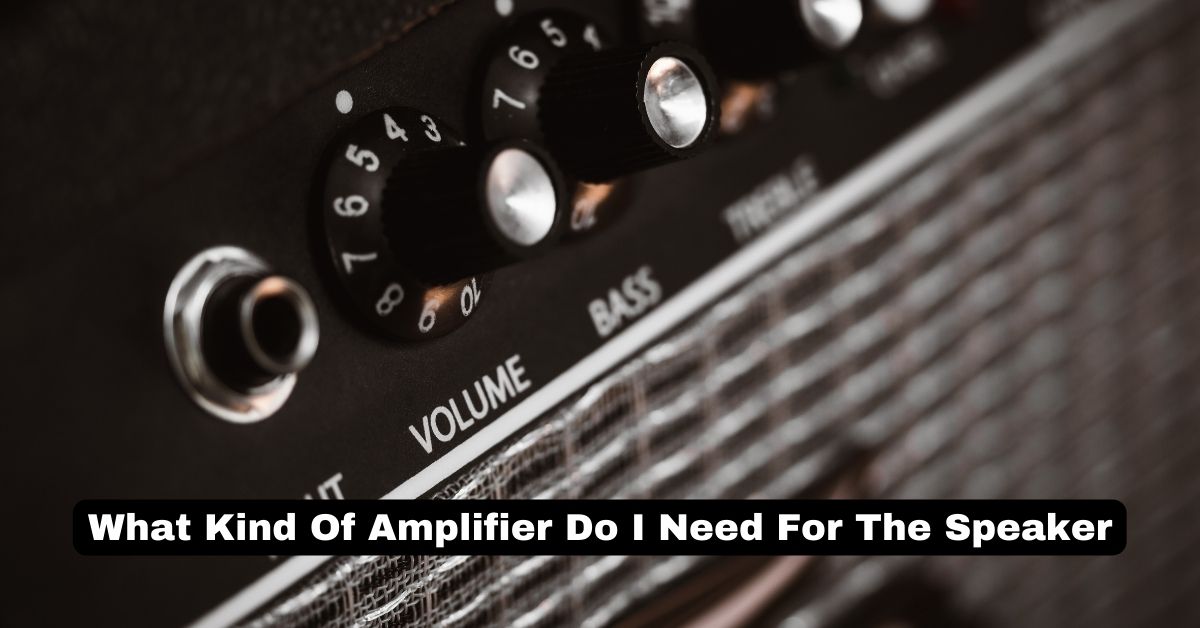Let’s start with what Kind Of Amplifier Do I Need For The Speaker. You may know the answer, but I’ll tell you anyway. Plenty of watts is what is essential. A lot of speakers have 1,000 or 2,000 watts.
That is great, but if you don’t use a high-quality amplifier that can handle those huge power ratings, you are investing in something that doesn’t make sense. All the speakers are manufactured to take at least 150 watts RMS, and most can handle 250 watts RMS.
If it says 250 watts RMS on the speaker, then 250 is all it will handle. Let me tell you how much power your amp should produce if you want to keep it simple and not get too technical.
So, Let’s Start.
What Kind Of Amplifier Do I Need For The Speaker?

An amplifier is a device that increases the power of an audio signal. It is typically used to drive speakers and other audio devices, such as headphones or a recording studio monitor.
The type of amplifier you need will depend on the kind of speakers you are using and the power requirements of those speakers.
If you use a set of passive speakers, you will need a separate amplifier to drive the speakers. The amplifier should provide enough power to drive the speakers to the desired volume level.
The amplifier’s wattage should be greater than or equal to the wattage of the speakers. For example, if you have a set of 100-watt speakers, you will need an amplifier with a wattage of at least 100 watts.
If you use an active speaker system, the speakers will have their built-in amplifier, so you will not need a separate amplifier. You can connect the audio source (such as a phone or a computer) directly to the speakers.
It’s important to note that the amplifier’s wattage is not the only factor to consider when selecting an amplifier.
You should also consider the type of amplifier (such as solid-state or tube), the number of channels (if you are using multiple speakers), and any other features that you may need (such as tone controls or a built-in equalizer).
Important For Considered:
When selecting an amplifier to power your speakers, you should choose one well-suited to the task. This will ensure that your equipment receives the best sound quality possible and keep your funds in the long run.
Choosing the wrong amplifier can cause damage to your speakers or even your amplifier. I’ll help you find the right specs for your speakers and amp, so you avoid hurting yourself or others.
When choosing an amp for your speakers, you must consider power and impedance. They are closely related.
Impedance:

Impedance is calculated in ohms, the opposition of a course. A speaker will “impede” or reduce the flow of electricity created by an amplifier.
To determine the impedance of your speakers, look up the nominal impedance on the manufacturer’s website. Most speakers have a small impedance of (4, 8, or 16 ohms).
If you combine numerous speakers into a single amplifier, finding the total impedance of the system isn’t as straightforward as it seems. I wrote about this here.
Power:
The power rating of a speaker is measured in watts, which is the amount of energy transferred per second. The power rating can also be found in the technical specifications.
Depending on the type of appliances you have, you’ll probably be able to find several power ratings.
Peak power is the highest part of power a speaker can operate for a short time. This can be compared to its continuous power rating, which is how much power it can drive over an extended period.
We’re more concerned with the speaker’s power handling over time than with testing its capabilities in a single test.
Manufacturers use RMS or AES specifications instead of continuous power ratings.
Speaker’s loudness is determined by the speaker’s sensitivity or how much sound it can produce, given a certain amount of power. Some speakers provide more sound than others when supplied with the same amount of energy from an amplifier.
How to Match Amplifiers and Speakers:

I consider it best to understand how to pair amplifiers to speakers by sample. If I were trying to find an amplifier for two QSC E115s, I’d start by finding a similar amplifier that was in the same price range and had enough power.
More Read: How to Match Amplifiers and Speakers
Others:
How Many wats Do I need:
Amplifiers are ordered in watts, which is a unit of power. To determine how many watts your setup will need, you should know the continuous power rating of each component.
This is given as a number called RMS (root mean square), calculated by taking the average RMS values in every 10-second interval within one second.
Power handling is the amount of power it can produce at its peak for a few seconds without damage. Pick an amplifier that can deliver twice the power output equal to the speaker’s continuous rating.
To drive a nominal 8-ohm loudspeaker with 350 watts, a 700-watt amplifier is required. A pro-level speaker can handle transient peaks above its power rating if they occur.
CONCLUSION:
With so many different kinds of amplifiers, it is hard to know which one would best fit the speaker you want to connect. Here in this article will help you make the right choice on which amplifier is best for your speaker.
